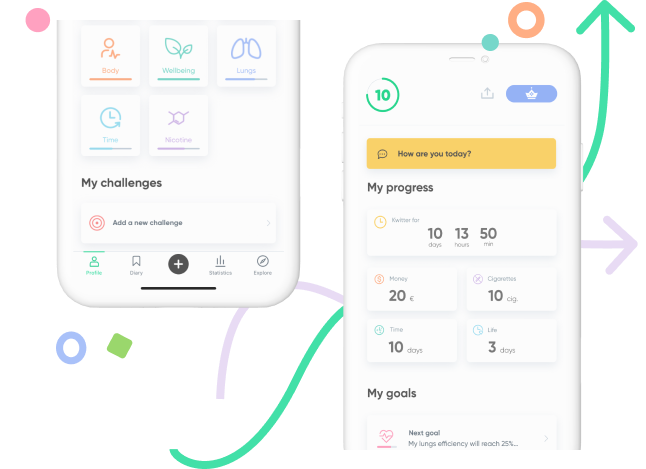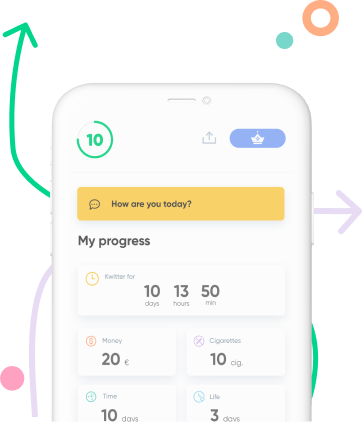July 10, 2019
Tips
Passive smoking — what's that?
Quitting smoking is good for you, but also for those around you! Let's learn more about second-hand smoke.
Quitting smoking is good for you, but also for those around you! Let's learn more about passive smoking.
A definition of passive smoking
World Health Organisation (WHO) defines passive smoking as « the smoke that fills restaurants, offices or other enclosed spaces when people burn tobacco products such as cigarettes, bidis and water-pipes. »
Tobacco smoke is indeed a very dangerous source of pollution because it contains toxic products, but also because we are exposed to it for much longer periods than those when we suffer from external air pollution.
What is second-hand smoke?
Second-hand smoke consists of smoke from the combustion of a tobacco product and smoke exhaled by a smoker.
One should keep in mind that most of the smoke emitted by a lit cigarette is not inhaled by the smoker. Indeed, it remains in the air and impacts all people nearby.
Second-hand smoke is the result of incomplete, low-temperature combustion of tobacco. Since this smoke is produced at lower temperatures, some of the chemicals are higher in this smoke than in primary smoke.
Quitting smoking is very beneficial to those around you!
Given the dangers of passive smoking described above, it is easy to understand the benefit for those around the smoker when the smoker quits. Indeed, the first beneficiaries are those of the family, spouse and children, the second are close persons such as friends or colleagues at work. Returning to the harmful effects of passive smoking will help us better understand the benefits of quitting.
Children are less likely to develop health problems if they are not exposed to second-hand smoke. Their immune systems are weaker, and when they grow up in a smoke-free environment, they are better protected against colds, bronchitis, ear infections and other diseases.
Also, an adult living with a person who has quit smoking will be less likely to have heart or lung disease.
So quitting smoking can only be a good decision, both for you and for those around you! Don't be afraid, get started, and especially don't hesitate to ask for support from your loved ones, the very people you protect by giving up smoking. They will be there for you, and will certainly be very grateful to you as well. Children are often the best people to encourage you in this withdrawal challenge; they will see your progress and help you hold on! 💪




